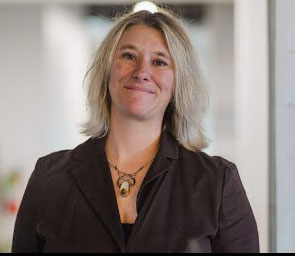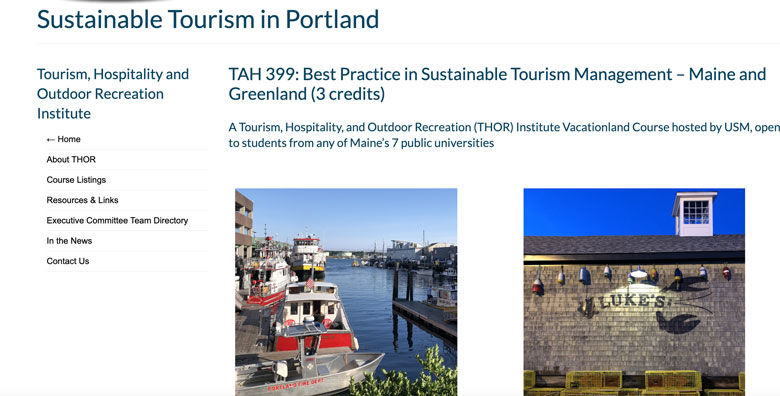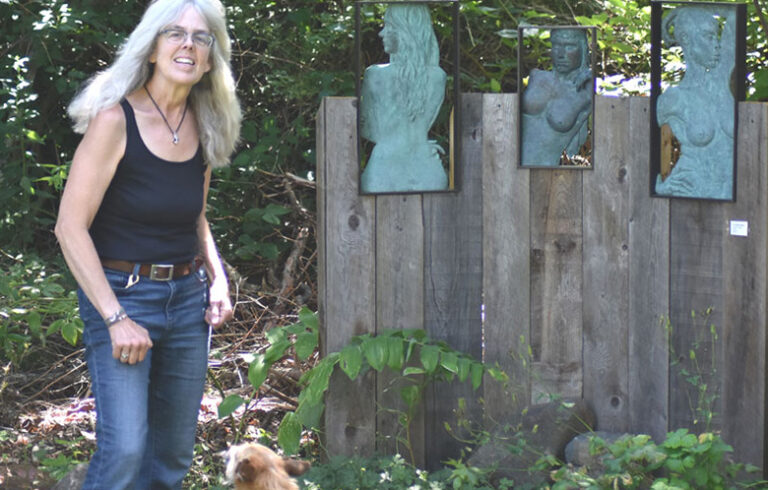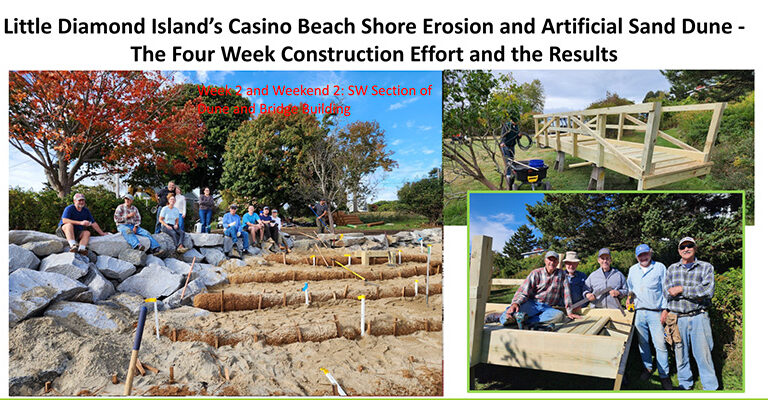Collaboration, creative problem solving, and caring leadership—all are taught within the University of Southern Maine’s Tourism & Hospitality program as part of a student’s education in sustainable tourism management. And with good reason.
The Bachelor of Arts in Tourism & Hospitality Management at USM is unique in that thinking about how to improve the industry, its place in the community, how to keep money local, and how to mitigate and prevent impacts from climate change are as valued as much as teaching the business skills of the industry.
Why is this approach important?
We are leaving this next generation of college graduates a challenging world. We need leaders in training who can understand the diverse obstacles ahead, wrestle with tough issues, brainstorm creative ideas, and work with others toward sustainable solutions. Travel and tourism can be part of the solution as it brings understanding between local and visiting peoples, revenue and jobs, infrastructure investments, and amenities that can improve quality of life for locals. But it does this only when done sustainably.
The tourism sector has a high percent of small businesses, good for keeping earned revenue local…
At USM, we teach students how to create the most positive results for people, place, and profit though their tourism businesses, and connect them to already successful organizations like Luke’s Lobster on the working waterfront in Portland’s Old Port, a shining example of a world-class sustainable operation that attracts visitors.
Why is this important to Maine?
Travel and tourism are one of Maine’s largest economic drivers employing a large part of the workforce and bringing in significant revenue. It is one of the best business recruitment strategies we have, because many who move here for a job or open their own business do so because they visited here and fell in love with Maine.

The tourism sector has a high percentage of small businesses, good for keeping earned revenue local and benefiting communities. It gives many a first job, building valuable skills, while providing a pathway to high paid management and ownership opportunities in a wide variety of careers that allows individuals to follow their passion-work outside in the woods as a Maine guide or manage a luxury spa on the Maine coast or both.
The ability to earn a living at something you care about is why students join our program, as well as all the other tourism and outdoor recreation degree programs in all the colleges within the University of Maine System.
Why is it important to have robust tourism and hospitality degree offerings in Maine?
Colleges within the UMaine System have a mission to serve the state. We educate most of Maine’s first-generation university students. A four-year college degree has been shown to improve someone’s chance of being in a leadership position and making more money ten years after working in an industry.
With tourism being a large part of Maine’s heritage and it playing a stronger and stronger role in the state economy, it is imperative to offer this educational opportunity to Mainers. We also apply the collaboration, creative problem solving, and caring leadership approach to the management of our own programs.
Each UMaine system school has collaborated for the past two years on the creation of the THOR (Tourism, Hospitality, Outdoor Recreation) Institute, the goal being to use our scare resources most efficiently to give future THOR leaders the highest quality and most thorough education in the state.
Students who matriculate into any college within the UMaine System can take advantage of expertise with classes at other campuses that apply to their major. Additionally, a new Vacationland series is being piloted to expose students through one-week intensive classes to every part of the travel and recreation industry in all parts of the state.
Collaborations with Maine’s First Peoples and Greenlandic tourism students and faculty continue to make our educational offerings that much richer and our graduates prepared for what the future brings.
Tracy Michaud, a lifelong Mainer, is an associate professor and chair of the Tourism & Hospitality Program at the University of Southern Maine as well as the Tourism, Hospitality, Outdoor Recreation (THOR) Institute. She can be contacted at tracy.michaud@maine.edu.





